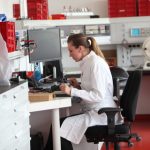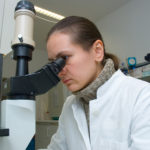
Researchers trial new therapy for male offenders with antisocial personality disorder
Bangor University has played an important role in researching a new psychological therapy for male offenders with antisocial personality disorder (ASPD). The study, published in The Lancet Psychiatry and funded by the National Institute for Health & Care Research (NIHR), investigated whether aggression and antisocial behaviours could be improved by a modified form of mentalisation … Continue reading Researchers trial new therapy for male offenders with antisocial personality disorder

Study looks at why some patients remain cancer free
Eminent philanthropist and three times cancer survivor Dr James Hull has joined forces with six universities to investigate why cancer returns in some people and not others. Focusing on people who have had successful treatment of advanced cancer and in whom the cancer has not reoccurred for at least five years, Swansea University says its … Continue reading Study looks at why some patients remain cancer free

Current understanding of renal physiology challenged
New research by the University of Bristol has found that the microscopic structure of the human kidney is different to what was previously known. The kidney is a key organ balancing blood and body chemistry through filtration and reabsorption. The control of blood flow and pressure through the kidney is crucial for maintaining this process. … Continue reading Current understanding of renal physiology challenged

Improved access to DNA from endangered species
Scientists will have improved access to DNA from endangered species, thanks to the development of the UK’s first national zoological biobank. The CryoArks Biobank, led by Professor Mike Bruford from Cardiff University, is a major investment towards cryogenically preserving genetic materials for conversation and research. As the UK’s first national zoological biobank, Cardiff University reports … Continue reading Improved access to DNA from endangered species

Scientists join forces to battle the world’s biggest killers
Scientists at the University of Birmingham, University of Nottingham and Brazil’s National Center for Research in Energy and Materials (CNPEM) have joined forces to develop the next generation of drugs to tackle two of the planet’s biggest killers, cardiovascular disease and cancer. As part of the Brazil-UK Year of Science and Innovation, the Brazilian Embassy … Continue reading Scientists join forces to battle the world’s biggest killers

Bath additives ineffective for eczema
Pouring emollient additives into a bath does not add any benefit over the standard management practices of eczema, according to a new study. In the largest trial of emollient bath additives to date, Cardiff University reports four hundred and eighty two children were randomly allocated to two groups. One group was asked to use bath … Continue reading Bath additives ineffective for eczema

Human genome sequenced using a pocket sized device
A new nanopore technology for direct sequencing of long strands of DNA has resulted in the most complete human genome ever assembled with a single technology, scientists have revealed. The University of Birmingham reports the research, published in Nature Biotechnology, involved scientists from the Universities of Birmingham, Nottingham, East Anglia, California, Salt Lake City, British … Continue reading Human genome sequenced using a pocket sized device

Breakthrough in live cell imaging
Research led by scientists at the University of Birmingham shows more precisely how G protein-coupled receptors, which are the key target of a large number of drugs, work. The human genome encodes hundreds of G protein-coupled receptors (GPCRs). These form the largest group of receptors through which hormones and neurotransmitters exert their functions on cells, … Continue reading Breakthrough in live cell imaging

High number of joint replacements in former rugby players
The University of Bath has reported that, in new research from the Arthritis Research UK Centre for Sport, Exercise and Osteoarthritis, researchers from the University of Oxford and the University of Bath’s Department for Health have identified that former elite, male rugby union players are at a greater risk of suffering from osteoarthritis, joint replacement … Continue reading High number of joint replacements in former rugby players

New Medicine Service will save NHS England £517.6m
A team of health economists has found a scheme launched by the Department of Health in 2011 to help patients stick to their drug regimens has been so successful, that in its first five years, it will save NHS England £517.6m in the long-term. Lead researcher Professor Rachel Elliott from the University of Manchester said … Continue reading New Medicine Service will save NHS England £517.6m








